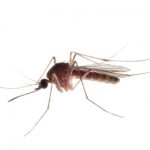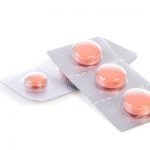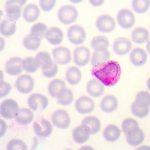Types of malaria tablets
- Doxycycline: from £0.30 per tablet – take one tablet per day from two days before you travel and continue for four weeks after your return.
- Malarone: from £2.85 per tablet – take one every day from two days before you travel and continue for 7 days after your return
- Chloroquine and Proguanil: £15.85 per pack – dosage dependant on weight. For adults over 45kg, take one Chloroquine tablet per week and one Proguanil tablet every day from 7 days before you travel and for four weeks after you return.
Prices
| Course | 1 week |
| Pack size | differs between brands |
| Price | £8.64 - £36.80 |
Which malaria tablets do I need?
Which malaria tablets you can use depends primarily on where you’re travelling to. The malaria parasite in some parts of the world has developed a resistance to chloroquine. If you are travelling to any of these countries, you need to take Malarone or doxycycline to be protected.
During your travel consultation, our nurse or pharmacist will tell you which antimalarials are suitable for the country or countries you’re travelling to. You can also check malaria advice for your destination by searching for the country name here.
Which tablets are best for you also depends on your medical history and the activities you have planned. Doxycycline can increase your sensitivity to sunlight and may therefore be less suitable if you’re likely to spend extended periods of time in the sun.
If several types of malaria tablets are suitable for your itinerary you can choose whichever you prefer – some travellers prefer to take tablets daily whereas other find it easier to remember taking their medication if it’s taken daily.
Malarone
Malarone costs more than the other antimalarials but is suitable for malaria prevention in all countries, including those where the parasite has developed a resistance to other antimalarials.
It needs to be taken daily from two days before you enter a risk area until seven days after your return.
Nausea and vomiting, headache, diarrhoea and stomach pain are very common side effects with Malarone. Common side effects include unusual dreams, dizziness, rash, mood disorders, insomnia, cough, and blood changes.
Doxycycline
Doxycycline is suitable for malaria in all parts of the world and available at a lower cost than Malarone.
You need to start your course two days before you travel, taking one tablet per day. Unlike Malarone, Doxycycline needs to be taken for four weeks after your return from a malaria area.
Doxycycline can cause your skin to be more sensitive to the sun than usual, so you need to take care to use sunscreen and avoid spending time in the sun wherever possible to avoid sunburn. You mustn’t use a sunbed while taking doxycycline.
Other possible side effects with doxycycline include loss of appetite, nausea, diarrhoea and other stomach problems.
Chloroquine and Proguanil
Chloroquine and Proguanil is one of the more affordable antimalarials but it’s only suitable for malaria prevention in a limited number of countries.
The dosage for this medication is dependant on your weight. For adults over 45kg, you’ll need to take the prescribed dose of Chloroquine once every week on the same day; Proguanil should be taken once every day. You should ideally start taking both tablets week before you enter a malaria area, and continue taking it them until four weeks after leaving a malaria area. If this medication is for an adult or child under 45kg, our trained travel specialists will be able to let you know how many tablets to take and when to take them.
Common side effects include gastrointestinal disturbances (e.g. diarrhoea), headache and skin reactions (e.g. rash). Please refer to the manufacturer’s patient information leaflet for a full list of side effects.
How malaria tablets work
Malaria is caused by a parasite which is transmitted via mosquito bites. Some malaria tablets work by stopping the parasite from multiplying in red blood cells meaning your immune system can fight the infection before you develop symptoms. Others work by preventing the parasite developing in the liver so they prevent the parasite from progressing to infect red blood cells and cause symptoms.
In order to be protected, it is important that you take the full course of tablets you have been prescribed. Malaria tablets only act on the parasite during specific stages of its lifecycle so if you stop taking your tablets too early you may still develop malaria if you were infected while abroad.
About Malaria
Malaria is endemic to over 100 countries. It can cause severe symptoms, such as a high fever, digestive problems, muscle pain and convulsions. If left untreated, it can be fatal.
If travelling to a risk area, it is important that you protect yourself. Malaria tablets offer effective protection but you still need to practise insect bite avoidance while in a risk area. You should wear long sleeved shirts and long trousers as well as using an insect repellent which contains DEET. You may also want to take a mosquito net with you to avoid being bitten during the night.
If you experience malaria symptoms at any point during or after your trip, seek medical help immediately, even if you have been using an antimalarial.



